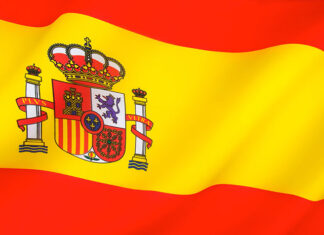You’ve probably wondered more than once why you can’t lose weight? A lot depends on how many calories you consume and how much you burn. How many calories to lose weight?
Caloric demand is really the daily energy requirement of our body – that is, how much energy in the form of food we need to provide our body to function well and at the same time maintain weight, lose weight or gain weight. In short – how many calories we need to eat for our body to work normally (breathe, pump blood, move, digest and have energy for exercise).
Calorie is a unit that shows how much energy our body absorbs after eating something. So, for example, if we eat a wafer that has 200 calories, we absorb 200 calories, which will then be used to maintain our life functions and activities.
BMR evaluation
First, assess your metabolic rate (BMR – Basal Metabolic Rate). PPM determines the minimum amount of calories necessary to maintain basic body functions such as breathing, heart rate, etc. BMR consumes 22 calories for every kilogram of a woman’s body weight and 24 calories per kilogram of a man’s weight.
WOMEN: BMR = weight in kg x 22
MEN: BMR = weight in kg x 24
e.g. my BMR is = 56 kg x 22 = 1232 kcal
Second, define your Phisical Activity Level (PAL). I would add that the concept of physical activity includes work that you do at home, walking, training, etc.

To determine the number of PAL you don’t need to make complicated estimates – just specify your activity:
- inactive, sedentary – 1.2
- quite active (walking and exercising 1 to 2 times a week) – 1.3
- moderately active (exercises 2-3 times a week) – 1.4
- active lifestyle (hard exercises at least 3 times a week) – 1.5
- very active – (heavy daily exercises) – 1.7
e.g. my activity rate is 1.5
Now, to get your daily caloric demand, you should multiply your BMR x PAL results.
my example: 1232 x 1.5 = 1848 kcal
1848 kcal is the number of calories that allows me to maintain my body weight.
If you have a muscular figure, you should add 150 kcal.
If you want to lose weight, you should reduce the number of calories in your diet by about 15%, while if you want to gain weight, increase the number of calories by 20%.
How to choose a diet?
When choosing a diet, you need to use common sense, remembering that:
- most diets with extremely low calories are unable to provide the energy necessary for the proper functioning of organs and systems during inactivity (the energy minimum, without which our body slowly ceases to function, because it lacks energy for basic life processes, e.g. breathing, thermoregulation and excretion of harmful compounds);
- the quantity is not always equal to quality (consuming only 1000 worthless calories, we can achieve worse weight loss effects than taking 1500 or 2000 calories from valuable products);
- caloric deficit is necessary, but in some cases it may not be too large (a low-calorie diet does not go hand in hand with intensive training and heavy physical or mental work);
- the diet must meet basic nutritional needs by providing all nutrients.












